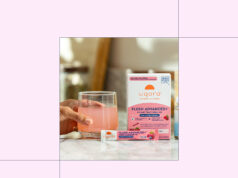A week or so after getting Profhilo, they’d emerge from Chanel-ed cocoons with bouncy, juicy skin that looked so gleamy that people would speculate how they’d achieved it. The answer? Around 30 or so injections to each side of the face, distributing an injectable moisturizer comprised of hyaluronic acid. And now, a new rendition of this treatment called Skinvive has arrived stateside for those of us without trans-continental dermatologists.
When neuromodulators, like Botox, and injectable fillers like Juvederm and Restylane, first arrived on the market, people were skeptical and judgemental about the need to put a needle in your skin for a desired effect. Research indicates that adoption of both Botox and filler is becoming more widespread, with one McKinsey report noting that “social stigmas around injectables may be receding and even that inaction may be regarded as self-neglect.”
Suffice it to say, we are long past the needle-weary days, and many of the best things you can do for your skin occur in the dermatologist’s office, including this new-to-market moisturizer.
What is Skinvive?
Skinvive is a microdroplet hyaluronic acid injectable that’s put into the skin with a needle. “Unlike other injectable hyaluronic acids on the market that provide volume and change the contour of the face, Skinvive is meant to work as an injectable skin hydrator without adding volume, targeting skin quality, improving texture, hydration, and general skin radiance,” says Carmen Castilla, MD, M.D, a board-certified dermatologist at New York Dermatology Group and clinical instructor at Mount Sinai Hospital.
Hyaluronic acid is a known humectant that holds 1,000 times its weight in water, making it a great contributor to skin hydration. According to Dr. Castilla, the major store of hyaluronic acid is in the dermal layer. We’re all born with naturally occurring hyaluronic acid in our skin; however, as we age, our skin’s stores of it deplete.
This leaves skin looking like it has less volume than usual, and it can also make it appear duller. Injectors fix the first issue with fillers that restore plumpness to our complexions, and they fix the latter with Skinvive, “which replenishes depleted hyaluronic acid stores leading to an increased ability to retain water and ultimately improving skin quality,” says Dr. Castilla.
This would either be a good option for someone who is looking to improve the early signs of skin aging and skin quality but not someone looking to target volume loss, or it should be used in conjunction with another product to help restore volume to the skin’s areas.
Typically, a single Skinvive treatment lasts six months, with the body metabolizing the product over time, according to Mona Gohara, MD, a board-certified New Haven-based dermatologist. Importantly, this is a mega-leap from what Profhilo offered with month-long results that kept those private jets plenty busy.
What does a SkinVive treatment feel like?

I found myself again sitting in NYC dermatologist Dendy Engelman MD’s chair at the Fifth Avenue Shaffer Clinic (my Paris). Dr. Engelman, who had recently seen me for my initial into Fraxel, numbed my cheeks and told me to wait for about 30 minutes. While some doctors forgo this step, you’re getting poked many times over, and it’s nice to be able to soften the jab.
After I was numbed, Dr. Engelman came back into the office and prepped the product. I looked to the side, and she pricked me with the needle roughly thirty times on each cheek. The injections wouldn’t have been any big deal—they largely felt like a Botox injection—except that there were so many more of them than I’m used to.
Even still, from the time the first prick happened to the last measured around ten or 15 minutes. As with filler, the results were close to immediate (though, importantly, the brand says that results truly develop over the course of a couple of weeks). I saw an improvement in the texture of my skin, and as the days went by it helped to take down some of the rosacea that I have in my cheeks.
What else to know about SkinVive
Right now, the only on-label use (a term that means it’s been approved by the Food and Drug Administration, the entity that regulates cosmetic procedures) is for the cheeks. However, Dr. Castilla surmises that it’s likely to be used off-label (or in ways that the FDA hasn’t approved) for places like the decolletage and the backs of the hands.
Importantly, Skinvive doesn’t necessarily take the place of your moisturizers or serums, but rather works with them. “It has been shown to increase aquaporins in the skin, which are channels in the cell membrane that control the flow of water into and out of the cells,” says Dr. Castilla. “Increasing aquaporins in the cell membrane can allow for water to diffuse into the cells more readily, which can help with hydration.”
In tandem with Skinvive, Dr. Castilla also encourages using sunscreen and products that amp up your own stores of collagen and elastin. For those looking for treatments to pair with Skinvive, she says to look to resurfacing lasers that boost collagen and elastin and improve skin quality, along with chemical peels or mico-needling to improve the overall skin texture.










